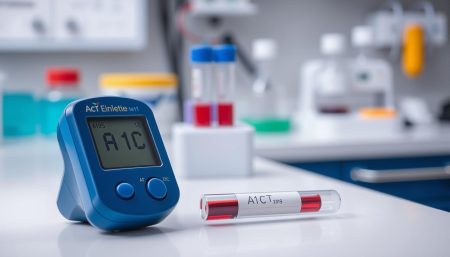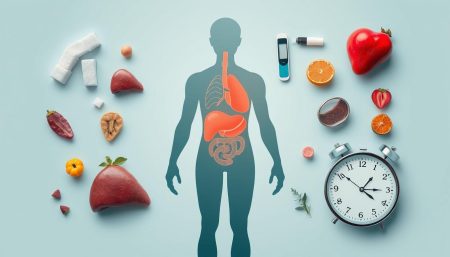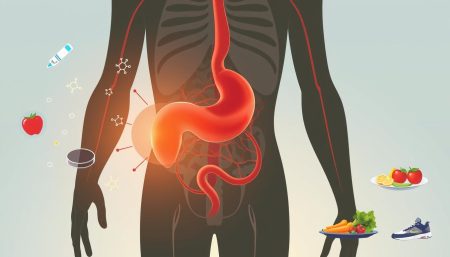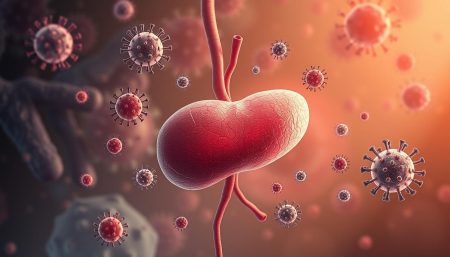Diabetes and kidney failure are closely linked, needing both knowledge and care. Kidney disease is a big problem for people with diabetes. It’s not just a health issue but a life-changing journey that needs careful care.
Understanding the link between blood sugar and kidney health is key. Keeping an eye on these levels is vital to avoid serious kidney problems. This shows how important it is to act quickly and follow treatment plans.
Dealing with kidney disease from diabetes is more than just medicine. It’s about making lifestyle changes, learning about the disease, and having support. Knowing about diabetes and kidney disease is the first step in fighting kidney problems.
Understanding Diabetes Mellitus and Its Impact on Kidneys
Diabetes mellitus is a long-term condition that harms many organs, including the kidneys. It often leads to diabetic nephropathy. This is a big reason for renal complications in diabetes and a major worry for doctors and patients.
Defining Diabetes Mellitus Kidney Disease
Diabetic nephropathy, or Diabetes Mellitus Kidney Disease, happens when high blood sugar damages the kidneys. This damage can make the kidneys work poorly over time. It increases the chance of kidney failure.
The Physiology: How Diabetes Affects the Kidneys
In people with diabetes, the kidneys’ filtering system gets damaged. The glomerular membrane thickens, and blood vessels in the kidneys get scarred. This makes it hard for the kidneys to filter waste, leading to protein in the urine, known as proteinuria.
Statistics: Prevalence of Diabetic Nephropathy
Diabetic nephropathy is a top cause of kidney failure. It leads to a lot of sickness and death. Even though better diabetes care has helped, the danger is big. Here’s a quick look at the numbers:
| Year | Diabetic Nephropathy Cases (in millions) | % of Diabetic Population |
|---|---|---|
| 2010 | 3.5 | 35% |
| 2015 | 4.2 | 38% |
| 2020 | 4.8 | 40% |
Identifying Diabetic Kidney Disease Symptoms
Spotting the signs of diabetic kidney disease early is vital. This guide helps you recognize these symptoms. They can sneak up on you, often without you realizing it at first.
- Persistent swelling in the legs and ankles due to fluid retention.
- Urine changes, such as foamy or dark urine, might indicate kidney filtration issues.
- Feeling more tired than usual without a clear reason, which could be due to toxins building up in your body as a result of kidney inefficiency.
- Nausea and vomiting, which are less common symptoms signaling uremia, where urea is retained in the blood.
- Shortness of breath may occur due to fluid accumulation around the lungs.
- Persistent itching, a sign of excess waste in the bloodstream.
Spotting these signs early can greatly help treatment. If you notice any of these symptoms, see a doctor right away. This can make a big difference in your care.
| Symptom | Possible Explanation | When to Consult a Doctor |
|---|---|---|
| Swelling in ankles | Fluid retention due to decreased kidney function. | Observe if persistent for multiple days. |
| Foamy urine | Presence of protein, a key indicator of kidney damage. | Consult immediately if frequently observed. |
| Increased fatigue | Toxins accumulating due to inadequate filtration. | Consult if changes in energy levels are noticed without any known cause. |
| Nausea | Possible buildup of urea in the bloodstream. | Seek advice if accompanied by other symptoms. |
| Shortness of breath | Fluid around the lungs; heart strain from excess fluid in the body. | Immediate consultation if it occurs suddenly or without explained cause. |
| Itching | Accumulation of waste products in the blood. | Consult if persistent and severe. |
Knowing these symptoms and catching them early is key. It helps manage and slow down diabetic kidney disease.
Key Risks Contributing to Kidney Complications in Diabetes
It’s important to know the risks that lead to kidney complications in diabetes. This includes high blood sugar, high blood pressure, and lifestyle choices. Understanding these factors helps manage diabetes mellitus kidney disease.
Hyperglycemia and its Influence on Renal Health
Diabetes often causes high blood sugar, which harms the kidneys. The kidneys work too hard to filter blood, leading to damage. This damage can make kidney complications in diabetes worse.
High Blood Pressure as a Risk Factor
High blood pressure adds to the risk of kidney damage in diabetes. It puts more stress on the kidneys, making diabetes mellitus kidney disease more likely. Keeping blood pressure under control is key to protecting the kidneys.
Lifestyle and Dietary Impact on Kidney Function
What we eat and how we live affects our kidneys. A diet full of sodium and unhealthy fats can raise blood pressure and harm the kidneys. Smoking and not being active also worsen kidney problems. Making healthier choices can help prevent these issues.
| Risk Factor | Impact on Kidney Health | Preventative Measures |
|---|---|---|
| Hyperglycemia | Increases workload on kidneys, potentially causing damage to filtration units. | Maintain blood glucose levels within target range through medication and monitoring. |
| High Blood Pressure | Further damages the kidney’s filtration system. | Regular monitoring and medication, dietary changes to reduce sodium intake. |
| Unhealthy Lifestyle | Exacerbates existing renal issues and fosters additional complications. | Engage in physical activity, quit smoking, and follow a balanced diet. |
By tackling these risks, we can slow down kidney complications in diabetes. This helps keep the kidneys healthy in patients with diabetes mellitus kidney disease.
Prevention Strategies for Diabetic Nephropathy
Managing and preventing diabetic nephropathy requires a detailed plan. This plan includes controlling blood sugar, managing blood pressure, and making lifestyle changes. We will look at ways to lower the risk of this serious kidney disease.
- Blood Sugar Control: Keeping blood sugar levels in check is key to preventing diabetic nephropathy. Regular checks and sticking to medication can help protect the kidneys.
- Blood Pressure Management: High blood pressure can harm the kidneys. Using blood pressure medicines and eating less sodium can help.
- Dietary Changes: Eating less protein, sodium, and processed foods can help protect the kidneys.
- Regular Exercise: Doing at least 30 minutes of moderate exercise daily can improve heart health and help manage blood sugar, which is important for preventing diabetic nephropathy.
Regular screenings for kidney function are essential. They include tests for proteinuria and serum creatinine levels. These tests help catch early signs of nephropathy and prevent serious kidney damage.
| Strategy | Description | Benefit |
|---|---|---|
| Glycemic Control | Maintain blood glucose levels within individualized target ranges. | Minimizes kidney damage risk. |
| BP Management | Regular use of antihypertensive medicine, reduced salt intake. | Prevents progression of kidney disease. |
| Diet | Low in protein, sodium, and toxins. | Slows kidney disease progression. |
| Exercise | Regular physical activity. | Improves heart and vascular health, assists in glucose control. |
In conclusion, making lifestyle changes and following medical advice can help prevent diabetic nephropathy. With careful care and regular check-ups, it’s possible to keep the kidneys healthy and slow damage. This leads to better health for people with diabetes.
The Role of Regular Screening in Diabetes and Kidney Failure Prevention
Early detection is key in stopping diabetes and kidney failure. Regular checks on kidney function can slow down diabetic nephropathy. This helps patients live healthier lives.
Understanding eGFR and Albuminuria Tests
The eGFR and Albuminuria tests are important for checking kidney health in people with diabetes. The eGFR test shows how well the kidneys filter blood. The Albuminuria test looks for albumin protein in urine, a sign of early kidney damage.
Frequency of Kidney Function Testing in Diabetic Patients
Guidelines say people with diabetes should get kidney function tests every year. If there are signs of kidney problems or other risks like high blood pressure, tests might need to be more often.
| Test | Purpose | Recommended Frequency |
|---|---|---|
| eGFR | Measures kidney filtration rate | Annually |
| Albuminuria | Detects early kidney damage | Annually or more frequently if levels are elevated |
Comprehensive Management of Diabetic Kidney Disease
Managing diabetic kidney disease needs a full approach. This includes lifestyle changes, medicines, and regular doctor visits. It’s key for patients, doctors, and family to work together. This way, the disease can progress slower, and patients can live better lives.
- Lifestyle Adjustments: Eating right, staying active, and checking blood sugar often are important. They help manage the disease well.
- Pharmacological Treatment: Doctors often give ACE inhibitors or ARBs to control blood pressure. This is a big part of treating the disease.
- Ongoing Monitoring: Regular doctor visits are vital. They help keep an eye on kidney health and other important health signs.
Quick action and tailored treatments are key in fighting diabetic kidney disease.
| Aspect of Management | Description | Benefits |
|---|---|---|
| Dietary Changes | Eating less sodium, controlling protein, and cutting sugar. | Helps manage weight and blood sugar, easing kidney stress. |
| Medication | Drugs to control blood pressure and sugar levels. | Protects kidneys and helps manage diabetes symptoms. |
| Physical Activity | Exercises like walking, swimming, or cycling. | Boosts kidney and heart health. |
- Following the treatment plan for diabetic kidney disease.
- Getting regular tests to check kidney health.
- Learning how lifestyle affects kidney health.
Renal Complications in Diabetes: Progression Stages
It’s important to understand how diabetes affects the kidneys. This section will look at the different stages of diabetic nephropathy. It will also talk about why regular checks and flexible treatments are key.
From Mild to Severe: Staging Diabetic Nephropathy
Diabetic nephropathy goes through several stages. At first, there might be a small increase in albumin in the urine. This can lead to more serious kidney problems. Catching these changes early can help prevent worse kidney issues and slow down their growth.
Monitoring and Adapting Treatment Plans Based on Disease Stage
As diabetic nephropathy gets worse, treatments need to change. Keeping an eye on kidney health through tests like urine albumin and eGFR is key. Depending on how bad the kidney problems are, treatments might get stronger or change.
| Stage | Description | Suggested Interventions |
|---|---|---|
| 1 – Mild | Slightly elevated albumin; normal eGFR | Routine monitoring, optimal diabetes control |
| 2 – Moderate | Increased albumin excretion; mildly reduced eGFR | Enhanced glycemic control, blood pressure management |
| 3 – Severe | Significant albuminuria; severely reduced eGFR | Use of ACE inhibitors or ARBs, referral to a nephrologist |
Every stage of diabetic nephropathy needs a special plan to slow it down and manage symptoms. Starting treatment early can prevent serious kidney problems later on.
Optimal Blood Sugar Control to Prevent Kidney Damage
Keeping blood sugar levels in check is key for people with diabetes to avoid kidney problems. Managing blood glucose well helps keep the condition stable and reduces the risk of kidney disease.
Medication Regimens for Blood Glucose Management
Having a strong medication plan is vital for keeping blood sugar in the right range. This plan includes insulin and oral medicines, chosen based on the patient’s health and kidney function.
Impact of Insulin and Oral Hypoglycemics on Renal Health
Insulin and oral medicines help control blood sugar but can affect the kidneys. It’s important to watch how they impact kidney function closely. This ensures they don’t make kidney problems worse.

- Patient-specific treatment plans: Personalized medication strategies are vital. They take into account the patient’s health and kidney damage.
- Regular monitoring: Keeping a close eye on kidney function is key. This helps adjust treatment plans to prevent more kidney problems.
- Educating patients: Teaching patients about the link between blood sugar and kidney health is important. It helps manage both conditions better.
By closely monitoring and adjusting treatments, the growth of kidney disease in diabetes can be slowed. This improves the lives of those affected.
Lifestyle Interventions in Supporting Kidney Health
Living a healthier lifestyle is key in stopping diabetic nephropathy. This part talks about simple steps people with diabetes can take. These steps help keep their kidneys healthy and avoid kidney disease problems.
- Physical Activity: Exercise is vital. It keeps weight in check, lowers blood pressure, and helps control blood sugar. Try to do at least 150 minutes of moderate exercise each week.
- Smoking Cessation: Smoking greatly increases the risk of kidney disease. Stopping can greatly lower the risk of kidney damage and other diabetes problems.
- Dietary Adjustments: Eating well is important. Focus on fruits, veggies, whole grains, and less sodium and sugar. This helps manage blood sugar and eases kidney work.
- Limiting Alcohol Intake: Too much alcohol can raise blood pressure and harm the liver. This affects kidney health. Drinking in moderation is best.
- Stress Management: Stress can make diabetes worse. Use mindfulness, yoga, and enough sleep to reduce stress and improve health.
By making these lifestyle changes, people with diabetes can prevent kidney disease and live better. It’s important to work with doctors to make these changes fit their health needs.
Pharmacological Interventions in Diabetic Kidney Disease Treatment
Pharmacological treatments play a key role in managing diabetic kidney disease. As medical science advances, so does our understanding of treatments that slow kidney damage in diabetics. This section looks at both current and new therapies.
ACE Inhibitors and ARBs: First Line Defense
ACE inhibitors and ARBs are at the heart of treating diabetic kidney disease. They lower blood pressure and reduce proteinuria, a major risk factor. By doing so, they protect kidney function over time.
Emerging Therapies and Clinical Trials
New treatments and ongoing research are key in fighting diabetic kidney disease. Agents like SGLT2 inhibitors and GLP-1 receptor agonists show promise in trials. They improve blood sugar control and protect the kidneys, expanding treatment options.
| Treatment | Description | Benefits |
|---|---|---|
| ACE Inhibitors | Reduces the production of angiotensin II, lowering blood pressure and decreasing kidney stress. | Slows progression of kidney disease, decreases proteinuria |
| ARBs | Blocks angiotensin II receptors, lowering blood pressure without altering bradykinin levels. | Protects kidney function, reduces mortality risk |
| SGLT2 Inhibitors | Prevents glucose reabsorption in the kidneys, improving glycemic control and reducing blood pressure. | Reduces heart-related issues and protects kidney function |
| GLP-1 Receptor Agonists | Enhances insulin secretion and lowers glucagon secretion in a glucose-dependent manner. | Improves glycemic control, potentially leading to weight loss |
Diabetes Mellitus Kidney Disease: Dietary Modifications for Better Outcomes
Managing diabetic kidney disease starts with what we eat. Changing our diet can really help our kidneys. We’ll look at how to adjust our intake of protein, sodium, and potassium.
Protein Intake and Kidney Function
For those with diabetes and kidney disease, watching protein is key. Too much protein can hurt the kidneys. Doctors suggest eating less protein and choosing plant-based options to ease the load on the kidneys.
Role of Sodium and Potassium Control in Diabetic Diets
Managing sodium and potassium is important for people with diabetes. These minerals affect blood pressure and fluid balance, which are vital for the kidneys. Eating less sodium helps control blood pressure and slows kidney damage. On the other hand, too much potassium can be dangerous, so it’s important to keep it in check.
| Dietary Component | Recommended Intake for Diabetes Mellitus Kidney Disease | Impact on Kidney Function |
|---|---|---|
| Protein | Moderate intake, with a focus on plant-based sources | Reduces workload on the kidneys, slowing disease progression |
| Sodium | Less than 2,000 mg per day | Helps control blood pressure and prevent further kidney damage |
| Potassium | Managed according to individual kidney function tests | Prevents dangerous buildup in the blood, protecting heart and kidney health |
Patient Education: Empowering Individuals with Diabetic Nephropathy
Teaching patients about diabetic nephropathy is key. It helps them understand their condition and how to manage it. This knowledge boosts patient compliance and helps prevent diabetic nephropathy.
Education is the foundation for patient empowerment. It gives them the power to make health decisions. This leads to better health outcomes.

New educational tools and programs meet the needs of patients with diabetic nephropathy. They explain medical terms simply and offer advice on diet, medication, and monitoring symptoms. Regular education helps patients spot complications early, which is vital for managing the disease.
- Brochures and pamphlets that outline the fundamentals of diabetic nephropathy management
- Interactive online platforms that offer tailored advice and feedback
- Workshops and seminars led by diabetes specialists
Good communication between healthcare providers and patients is also important. It helps everyone understand treatment goals and the importance of following health plans. These talks are key to reinforcing education and adjusting it as needed.
| Tool | Objective | Expected Impact |
|---|---|---|
| Educational Workshops | To provide in-depth knowledge on disease management | Patients become more confident in managing symptoms and making health decisions |
| Online Self-management Resources | To improve daily self-care practices | Improved daily management leads to fewer complications |
| Regular Consultations | To assess and adjust treatment plans | Personalized care tailored to the patient’s needs improves overall effectiveness |
Investing in education is a proactive way to manage diabetic nephropathy. It creates an environment where patients are active partners in their care. This approach not only strengthens prevention strategies but also involves patients in decision-making. It increases the chances of positive health outcomes and slows disease progression.
Exploring Kidney Transplant and Dialysis in Severe Cases
In advanced stages of diabetic kidney disease, healthcare professionals might suggest more invasive interventions. This includes kidney transplant or various forms of dialysis. This exploration is vital for those facing the harsh realities of severe diabetic nephropathy.
Criteria for Kidney Transplant Eligibility
Kidney transplant is a critical option in diabetic kidney disease treatment. It’s recommended when other treatments have not halted the progress of disease. Eligibility for a kidney transplant is determined by several factors. These include the patient’s overall health, presence of other medical conditions, and likelihood of benefiting from the transplant.
Understanding Types of Dialysis: Hemodialysis vs. Peritoneal Dialysis
For patients not suitable for a transplant, dialysis remains a lifesaving alternative. There are two main types of dialysis treatments: hemodialysis and peritoneal dialysis. Both methods filter waste from the blood, similar to what healthy kidneys would do.
| Treatment Type | Process | Frequency | Location |
|---|---|---|---|
| Hemodialysis | Blood is filtered outside the body using a dialyzer | 3 times per week | Dialysis center or home |
| Peritoneal Dialysis | Filtering occurs inside the body using the abdomen lining | Daily | Home |
Choosing between hemodialysis and peritoneal dialysis depends on various factors. These include lifestyle preferences, medical condition, and personal support system. Each method has its benefits and constraints. A thorough discussion with healthcare providers is necessary to align with the patient’s life and treatment goals.
Innovations in Diabetic Kidney Disease Treatment and Monitoring
Research is helping us understand diabetic kidney disease better. This leads to new treatments and ways to manage the disease. New technologies and medicines are key in these advancements.
These tools help doctors tailor treatments to each patient. This makes managing the disease more effective and personal.
New medicines are being made to fight diabetic kidney disease. They show great promise in slowing the disease and reducing problems. These medicines could change how we treat the disease, improving life quality and longevity.
Combining lifestyle changes with medicine is also helping. This approach improves overall health for those with the disease.
Early detection is vital for health issues like kidney cancer. Spotting symptoms like blood in urine or back pain early is important. It leads to better care and outcomes.
Understanding symptoms is key to disease prognosis. For more on this, read about early signs and kidney cancer symptoms. This shows how important advances in diagnosis are.
Looking ahead, innovation in treating diabetic kidney disease will change lives. It will keep improving how we manage this complex health issue.
FAQ
Q: What is diabetes mellitus kidney disease?
A: Diabetes mellitus kidney disease, also known as diabetic nephropathy, happens when diabetes damages the kidneys. This damage can lead to kidney failure if not managed well.
Q: How does diabetes affect the kidneys?
A: Diabetes can harm the kidneys over time. This leads to protein in the urine and a decrease in kidney function. If not treated, it can cause complete kidney failure.
Q: What are the symptoms of diabetic kidney disease?
A: Symptoms include swelling in the ankles and feet, fatigue, nausea, and dark urine. Many symptoms appear late, so regular screening is key.
Q: What are the main risk factors for kidney complications in diabetes?
A: Risk factors include high blood sugar, high blood pressure, family history, obesity, and a diet high in sodium. Smoking and lack of exercise also increase the risk.
Q: How can diabetic nephropathy be prevented?
A: Preventing diabetic nephropathy involves controlling blood sugar and blood pressure. A healthy lifestyle, avoiding harmful substances, and regular monitoring are also important.
Q: What are the recommended tests for monitoring kidney function in diabetes?
A: Tests include the estimated Glomerular Filtration Rate (eGFR) and the urine albumin-to-creatinine ratio. These assess kidney function and detect protein in the urine.
Q: What is the management strategy for diabetic kidney disease?
A: Management includes controlling blood sugar and blood pressure. It also involves dietary changes, regular check-ups, and in advanced stages, dialysis or a transplant.
Q: What are the stages of diabetic nephropathy progression?
A: Stages range from mild kidney damage to advanced damage and kidney failure. Each stage has different symptoms and requires different treatments.
Q: How should blood sugar be managed to prevent kidney damage in diabetes?
A: Blood sugar should be managed through diet, exercise, and medications. Regular monitoring is essential to prevent kidney damage.
Q: What lifestyle changes can support kidney health in diabetes?
A: Lifestyle changes include maintaining a healthy weight, exercising regularly, quitting smoking, and eating a kidney-friendly diet. Managing blood pressure is also important.
Q: What pharmacological treatments are available for diabetic kidney disease?
A: Treatments include ACE inhibitors and ARBs to control blood pressure and protect the kidneys. Medications for blood sugar control are also used. New therapies are being tested.
Q: How can diet affect kidney function in individuals with diabetes mellitus kidney disease?
A: Diet is key in managing kidney function in diabetics. Reducing protein intake and controlling sodium and potassium can help prevent fluid retention and blood pressure elevation.
Q: Why is patient education important in managing diabetic nephropathy?
A: Patient education empowers individuals to manage their diabetes and kidney health. It helps them follow treatment plans and make informed decisions about their care.
Q: What are the criteria for kidney transplant eligibility for patients with diabetes?
A: Criteria include advanced or end-stage kidney disease and sufficient health for surgery. A commitment to post-transplant care is also required. Each case is evaluated individually.
Q: What is the difference between hemodialysis and peritoneal dialysis?
A: Hemodialysis filters the blood through a machine outside the body. Peritoneal dialysis uses the lining of the abdomen to remove waste products from the blood inside the body.
Q: What are the latest advancements in diabetic kidney disease treatment and monitoring?
A: Recent advancements include new drugs that slow disease progression and improved dialysis technology. Personalized medicine and wearable devices for continuous monitoring are also being developed.


















